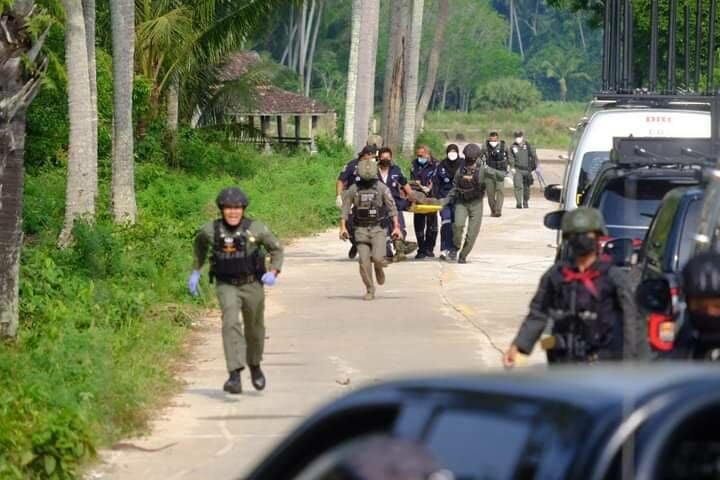Rebel group PULO won’t engage in peace talks if independence is off the table

The leader of a rebel group in Thailand’s Deep South said the rebels will not engage in peace talks with the Thai government if the possibility of independence in Thailand’s southern border region is off the table. Under the framework of Thailand’s current constitution, the kingdom remains indivisible.
The group’s leader Kasturi Makhota made the announcement days after his rebel group the Patani United Liberation Organisation – or PULO – took responsibility for a double bomb attack in Pattani, which killed a fisherman and seriously injured bomb disposal officers. The attack broke the 40 day Ramadan/Songkran ceasefire in the area agreed by the Thai government and the Barisan Revolusi Nasional who are the most active rebel group in the conflict.
PULO said they undertook the attack in Sai Buri district of Pattani province on Friday because they were excluded from the recent peace talks between the Thai government and the BRN held in Malaysia. The attack was the first claimed by PULO since 2016.
The situation highlights the discrepancy in demands of rebel groups. Separatist groups have historically fought for independence of the historical region of the Kingdom of Patani, which covers modern day Pattani, Yala, Narathiwat and some parts of Songkhla province. However, the BRN is happy to negotiate with Thailand under the framework of the modern constitution under which division is not possible, suggesting the group’s hopes for the region may have changed.
Whereas PULO “will not talk or negotiate under the framework of the Thai constitution because PULO wants freedom from Thailand”, said Kasturi, the group’s leader.
Find out what the violent southern insurgency is all about HERE.
A resident of Pattani, Hisbullah Muso, commented on the schism between the rebel groups…
“It seems two people’s organisations are fighting each other… They built forces to fight each other, [which is] no good. There were rifts among the rebels for a long time, even though they say they fight for the people… the government, however, should talk to PULO should it want to achieve peace.”
The Thai government says they informally talk to all rebel groups in the Deep South. However, two members of the Thai military said it was too soon to tell if PULO would be invited to the next round of peace talks held in Malaysia.
Thai Army Commander of the Deep South Kriangkrai Srirak said…
“Whether we will consider including PULO in the future, it’s up to the Peace Dialogue Panel who, in general, wants to talk to all groups.”
The BRN and PULO used to be part of MARA Patani, a panel which negotiated with the Thai government. Kasturi was one of PULO’s representatives on the panel. MARA Patani began engaging with the Thai government in Malaysia in 2015 but the talks fizzled out when the BRN began talking with the Thai government directly in 2020.
The BRN says their negotiations with the Thais have no influence over other rebel groups. An anonymous BRN representative told BenarNews…
“For other Patani movements that wish to negotiate with the Thais, they can put forward their terms and conditions to the Thais themselves… BRN never stops other Patani movements to negotiate with the Thais.”
Currently, there is a 40 day ceasefire in place, which covers both Songkran and the holy month of Ramadan agreed by Thai security forces and the BRN. However, army general Kriangkrai said Friday’s attack was not a surprise as security forces had been expecting an attack from a third party despite the temporary truce of no violence.
The government condemned PULO’s bombings but said the truce agreement with the BRN is still in effect and assured the public that the bombings will not derail peace talks with separatist rebels.
More than 7,300 people have been killed in conflict between the Thai government and rebel groups in Narathiwat, Yala, Pattani and parts of Songkhla since violence resurfaced in the area in 2004.
SOURCE: BenarNews
Latest Thailand News
Follow The Thaiger on Google News:


























